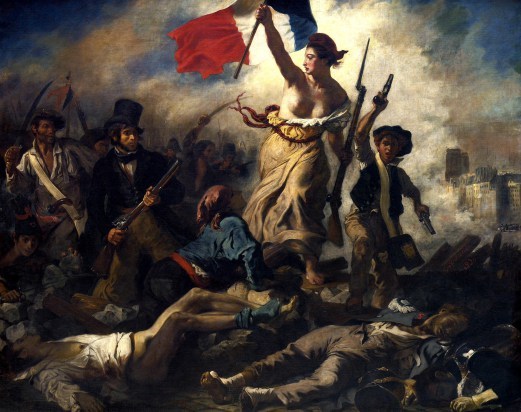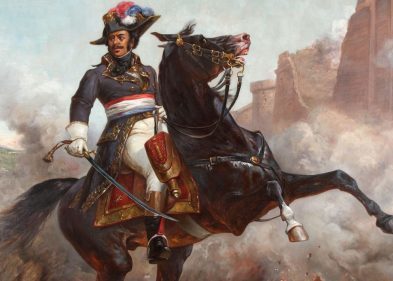Je serai publiee en France : In which Paris, the City, asks me to sing her song…

Disclaimer: I have no idea why this nice flag waving french lady pictured above is in the middle of battle with her top falling down, it seems like a highly improbable state of affairs, and probably painted by a man. I think she’s meant to be the embodiment of liberty, but I’m not sure that explains anything.
What can I possibly say to explain how much it meant to me to be published in France? When we got news that we had offers from French publishing houses I was actually worried. Having grown up around proud Parisians, counting some as my closest friends, visiting the city regularly, having Parisian brother and sister in laws, and my siblings both living in the city, I have come to know a little bit about French reactions to certain things . And I was worried the reaction to me-an Englishwoman– writing a retelling of a great classic of French literature , heavily featuring the history of Paris, stood a 50/50 chance of being considered an outright sacrilege. So when Hachette offered for me and sent a long email full of excitement about the book and delight at its championing of Parisian history and literary tradition, I actually started to cry.
As a giant Hugo fan, and a fascinated history geek, the rich tapestry of Parisian history was one of the most epic wells I could draw from. I loved every second of throwing myself into research, and I discovered so much about the city and its often violent past, that I had never known before (Despite doing my friend’s Lycée Labourdonnais French History homework for her when we were teens – thanks Shalini, this book probably wouldn’t exist if it weren’t for your hatred of homework). There is a depth here that I believe we only ever skim the surface off. Just think for a minute:
The Three Musketeers was written by the same author as the Count of Monte Cristo; Alexandre Dumas Jnr. Who was named after his father, Alexandre Dumas Snr. Monte Cristo is loosely inspired by the fall of Dumas Snr, who was the first Black general of France’s army, best buds with Napoleon Bonaparte till the latter betrayed him effectively trying to write him out of the history books. YOU CAN’T MAKE THIS STUFF UP GUYS…

Alexandre Dumas Snr, aka the Black Count, one of my favourite people from history
The more I researched Paris, the more the city sang me her song, she is a character in her own right, the Ank-Morpork to Nina’s Sam Vimes, the Gotham to Nina’s Batman, Paris is Nina’s love, her destiny, her mother. So hearing the excitement of the team at Hachette left me very emotional, grateful and overwhelmed.
Je suis très très emue.
For good measure, here’s the bloodthirsty French National Anthem with translated lyrics for your pleasure…



